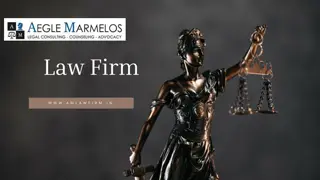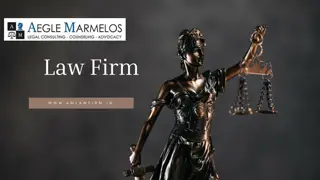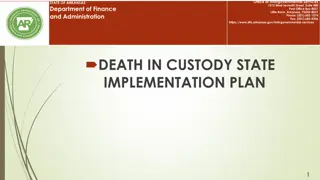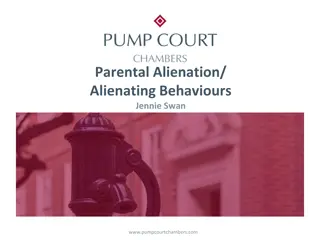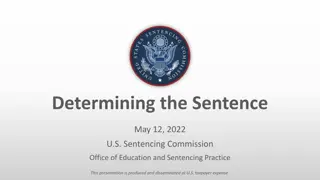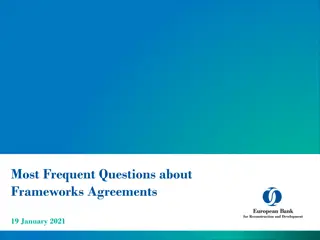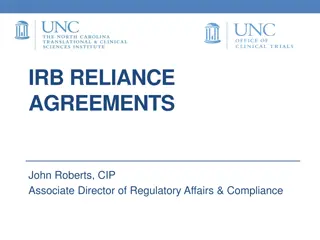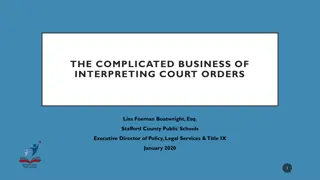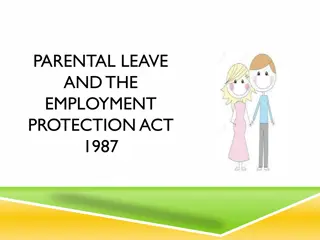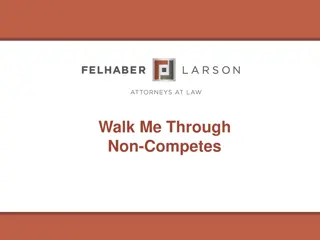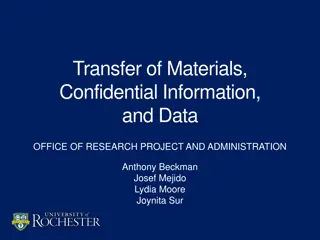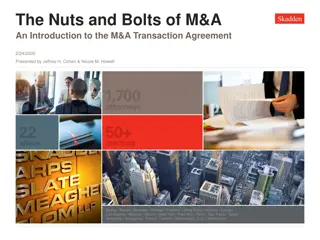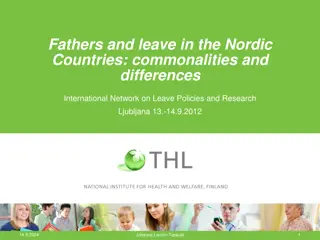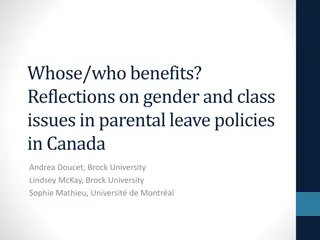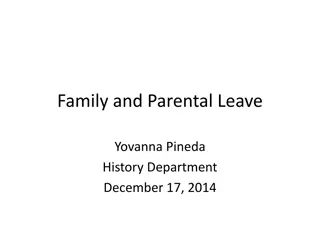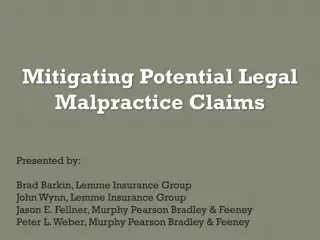Comprehensive Overview of Custody Laws and Parental Agreements
Explore a detailed examination of custody laws and parental agreements in cases such as Custody Modification, Child's Preference, Chancellor's Authority, and Parental Agreement Provision. Learn about key court decisions and factors influencing custody arrangements.
Download Presentation

Please find below an Image/Link to download the presentation.
The content on the website is provided AS IS for your information and personal use only. It may not be sold, licensed, or shared on other websites without obtaining consent from the author.If you encounter any issues during the download, it is possible that the publisher has removed the file from their server.
You are allowed to download the files provided on this website for personal or commercial use, subject to the condition that they are used lawfully. All files are the property of their respective owners.
The content on the website is provided AS IS for your information and personal use only. It may not be sold, licensed, or shared on other websites without obtaining consent from the author.
E N D
Presentation Transcript
ALBRIGHT FACTORS: CHILDS PREFERENCE Roley v. Roley The court of appeals declined to address a father s challenge to the child s preference statute, Miss. Code Ann. 93-11-65. - As a prerequisite to considering a child s preference, a chancellor must find that both parents are fit and able to care for the child. - The chancellor in Roley found that the father was not fit to have custody.
JOHNSON V. JOHNSON Custody modification requires: In Johnson, a noncustodial father was favored on the Albright factor of continuity of care because his son spent most of his time at his home. A material change in the custodial parent s home, that adversely affects the child, and a finding that modification is in the child s best interest, using the Albright factors. The son slept at his mother s house, but spent his days with his father.
Kerr v. Kerr A chancellor had authority to order parents to continue a child s enrollment in daycare. CHANCELLOR S AUTHORITY TO ADDRESS CHILD S EDUCATION The court rejected the mother s argument that chancellors lack power to order children to attend daycare prior to kindergarten. Consider: A chancellor probably could not order a pre-school-age child to attend daycare if both parents chose to provide training for the child at home.
Parents agreement provided: The parents shared joint legal custody, but in the event of disagreement, the father had decision-making authority. BRYANT V. BRYANT The parents each paid one-half of the children s private school tuition, but if either parent was unable to pay, the issue would be resolved by the court. The parties agreed and understood that the contract could be submitted to the court for approval or disapproval.
BRYANT V. BRYANT The majority held The dissenters argued - Chancellors may modify an agreement based on a child s best interests. - In order to modify, a chancellor must find a material change in circumstances. - The provision granting the court authority to approve or disapprove allowed the chancellor to change the agreement. - The provision regarding chancellor approval was a standard provision related to acceptance of the agreement and incorporation in the judgment.
Roley v. Roley A chancellor may modify a custody order that is on appeal if they find that there has been a material change in circumstances since the appealed order was entered. MODIFICATION WHILE CUSTODY ORDER IS PENDING In Roley, no material change was shown.
DAVIS V. DAVIS The chancellor modified custody to the father finding that The court of appeals reversed, holding that - The mother s report of abuse was without rational basis and a material change in circumstances. - The report was not without some basis because of the girl s statements. - There was no interference with parental rights because the mother did not identify the man to her daughter as her father. - The mother s introducing the girl to a man who was her biological father was an intentional interference with the legal father s rights. The supreme court granted certiorari.
Custody was modified to a father based in part on a mother s failure to meet her obligations as a joint legal custodian, including THORNTON V. THORNTON - Refusing to list him as a contact at school - Failing to inform him of the children s events, failing grades, transfer of schools, and medical problems - Refusing him visitation if he was delayed by work.
RILEY V. DOERNER In Riley v. Doerner, the court held that a chancellor may modify custody without meeting the requirements of the traditional test when - An original order put a child into adverse circumstances, and - the child s best interests would be served by modification.
A chancellor modified custody to a father, finding - No material change in the custodial mother s home, but - That the arrangement put the boy in adverse circumstances, causing him depression and anxiety, and CRONEY V. SOLANGI - His best interests would be served by living with his father. - The court of appeals affirmed based on Riley v. Doerner.
SMITH V. SMITH Parents three-year litigation over their children s schooling, tuition, and extracurricular activities showed their inability to work together as joint legal custodians. The chancellor properly modified legal custody to the parent with physical custody (the parties had split custody of two children).
TEMPORARY CUSTODY Roberts v. Conner: Mississippi Child Abduction Protection Act Nonparents were granted temporary custody without notice to a child s mother after the custodial father died. The act provides for emergency custody without notice. Miss. Code Ann. 93-29-1. The out-of-state mother had a history of failing to return the girl after visitation and her home was uninhabitable.
TEMPORARY CUSTODY Summers v. Gros: Challenging temporary orders is difficult: A chancellor found that a mother deserted her son by failing to visit with him regularly from Texas after grandparents were awarded temporary custody and she was given four hours each Sunday. Temporary orders are interlocutory and cannot be appealed. After final judgment, a temporary order is mooted by the final award of custody and cannot be challenged on appeal.
Greer v. Akers: A grandmother who visited regularly with a grandchild until she was 10 months old did not meet the statutory test for a viable relationship, which requires a year of visits. GRANDPARENT VISITATION The statute is strictly construed and the test must be met with regard to each child. Visitation time one weekend a month and 10 days in the summer was not excessive. The preference against separating siblings does not apply in grandparent visitation cases.
GRANDPARENT VISITATION Battise v. Aucoin -Attorney s fees The statute allowing parents to recover attorneys fees from grandparents applies only in cases in which a parent is sued by their own parents. A chancellor erred in ordering paternal grandparents to pay the mother s attorneys fees.
GRANDPARENT VISITATION Sims v. Sims: A father s refusal to allow his father to visit with his children was reasonable. His father had been manipulative and emotionally abusive to him. He saw signs of similar behavior toward his three- year-old son.
- Mother had physical custody; father had extensive visitation; they shared legal custody - Parents agreed to each pay one-half of the children s private school tuition and tuition at any other such schools the children might attend. - When their daughter was diagnosed with dyslexia, they agreed the mother would move with her to Memphis to a school that ended in 6thgrade. - 18 months later the mother decided to move to Nashville. SMITH V. SMITH
Smith v. Smith: The chancellor held that the mother s move was not a material change in circumstances. PARENT RELOCATION The court of appeals affirmed, declining to reexamine the Mississippi rule that a custodial parent s relocation is not a material change. The supreme court denied certiorari.
CUSTODIAL PARENT RELOCATION [T]his does not constitute a change in circumstances which would adversely affect the children, even though it might . . . cause a hardship on the other spouse with regard to existing visitation privileges. The fact that Hawaii or Alaska happens to be the state of transfer is of no consequence. Pearson v. Pearson, 458 So. 2d 711, 714 (Miss. 1984). We regard as legally irrelevant to the matter of permanent custody the fact that taking the children to a distant state effectively curtails the noncustodial parent's visitation rights. Holland v. Spain, 483 So. 2d 318, 321 (Miss. 1986).
A joint custodial parents move made the present joint physical and legal custody arrangement impractical and as such constitutes a material change in circumstances adverse to the children's best interest. JOINT CUSTODIAL PARENT RELOCATION Porter v. Porter, 23 So. 3d 438, 448 (Miss. 2009) (finding for father on children s home, school, and community record and stability of home environment and stability of employment).
Parents agreement that children will live in a particular location for their minority is not an enforceable agreement. When a custodial mother moved from Tupelo to Jackson, her agreement that the children would remain in Tupelo was void as against public policy and unenforceable. RELOCATION AGREEMENTS Bell v. Bell, 572 So. 2d 841, 845-46 (Miss. 1990).
An agreement that custody will transfer to a noncustodial parent upon a custodial parent s move is unenforceable. RELOCATION AGREEMENTS Parents may not deprive the court of authority to determine what custodial arrangement is in a child s best interest. McManus v. Howard, 569 So. 2d 1213, 1216 (Miss. 1990).
Is this provision enforceable? Parents agree that if the custodial parent moves more than 30 miles from their current location, the move is a material change of circumstances. The court will determine, based on the Albright factors, the custody arrangement that is in the child s best interest. RELOCATION AGREEMENTS In Rutledge v. Rutledge, 487 So. 2d 218, 220 (Miss. 1986) the chancellor and supreme court ignored a similar provision in the parents divorce agreement, finding that a mother s move was not a material change in circumstances.
PROVING A MATERIAL CHANGE Courts have modified custody to noncustodial parents on proof of A child s preference to remain with the noncustodial parent may be a significant factor. - Adverse circumstances unrelated to the custodial parent s move - Adverse circumstances about the move OTHER THAN the impact on the noncustodial parent/child relationship In Pulliam v. Smith, 872 So. 2d 790, 794-95 (Miss. Ct. App. 2004) custody was modified to a father when a mother negotiated visitation knowing that she would soon move 500 miles, making the agreed visitation impossible.



